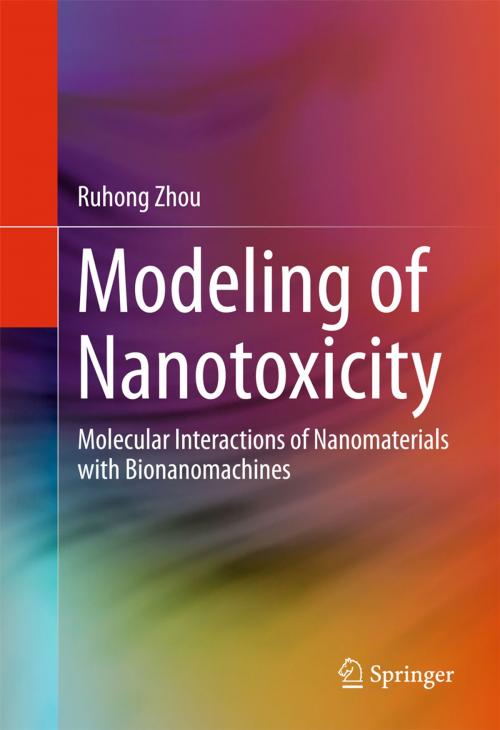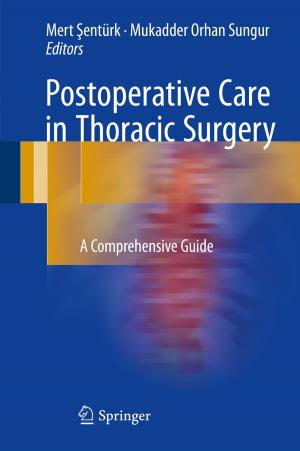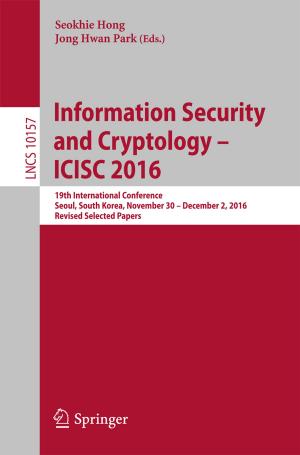Modeling of Nanotoxicity
Molecular Interactions of Nanomaterials with Bionanomachines
Nonfiction, Science & Nature, Technology, Nanotechnology, Engineering| Author: | Ruhong Zhou | ISBN: | 9783319153827 |
| Publisher: | Springer International Publishing | Publication: | September 4, 2015 |
| Imprint: | Springer | Language: | English |
| Author: | Ruhong Zhou |
| ISBN: | 9783319153827 |
| Publisher: | Springer International Publishing |
| Publication: | September 4, 2015 |
| Imprint: | Springer |
| Language: | English |
This book provides a comprehensive overview of the fundamentals of nanotoxicity modeling and its implications for the development of novel nanomedicines. It lays out the fundamentals of nanotoxicity modeling for an array of nanomaterial systems, ranging from carbon-based nanoparticles to noble metals, metal oxides, and quantum dots. The author illustrates how molecular (classical mechanics) and atomic (quantum mechanics) modeling approaches can be applied to bolster our understanding of many important aspects of this critical nanotoxicity issue. Each chapter is organized by types of nanomaterials for practicality, making this an ideal book for senior undergraduate students, graduate students, and researchers in nanotechnology, chemistry, physics, molecular biology, and computer science. It is also of interest to academic and industry professionals who work on nanodrug delivery and related biomedical applications, and aids readers in their biocompatibility assessment efforts in the coming age of nanotechnology. This book also provides a critical assessment of advanced molecular modeling and other computational techniques to nanosafety, and highlights current and future biomedical applications of nanoparticles in relation to nanosafety.
This book provides a comprehensive overview of the fundamentals of nanotoxicity modeling and its implications for the development of novel nanomedicines. It lays out the fundamentals of nanotoxicity modeling for an array of nanomaterial systems, ranging from carbon-based nanoparticles to noble metals, metal oxides, and quantum dots. The author illustrates how molecular (classical mechanics) and atomic (quantum mechanics) modeling approaches can be applied to bolster our understanding of many important aspects of this critical nanotoxicity issue. Each chapter is organized by types of nanomaterials for practicality, making this an ideal book for senior undergraduate students, graduate students, and researchers in nanotechnology, chemistry, physics, molecular biology, and computer science. It is also of interest to academic and industry professionals who work on nanodrug delivery and related biomedical applications, and aids readers in their biocompatibility assessment efforts in the coming age of nanotechnology. This book also provides a critical assessment of advanced molecular modeling and other computational techniques to nanosafety, and highlights current and future biomedical applications of nanoparticles in relation to nanosafety.















